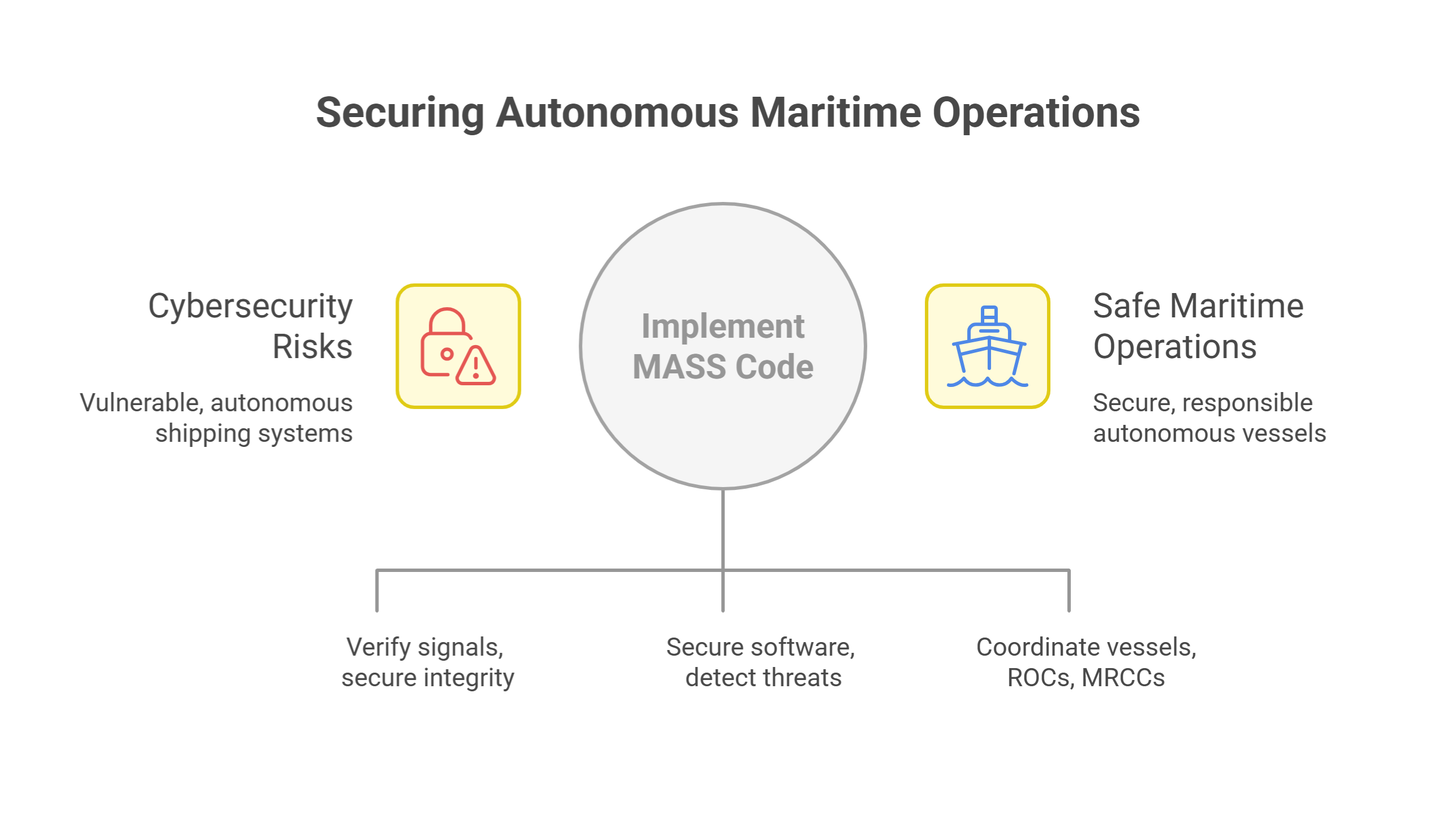The future of the global movement of goods is being reshaped by the rise of autonomous shipping. As this transformative technology advances, it brings with it a complex web of challenges, particularly in ensuring that vessels are controlled safely and securely in a highly skilled, technology-driven environment. Not everyone operating in this space has altruistic intentions, and the risks of cyberattacks, piracy, and communication breaches are real and growing.
The International Maritime Organization (IMO) has made significant progress on the Maritime Autonomous Surface Ships (MASS) Code, a framework designed to guide the safe and secure operation of autonomous vessels. This article explores the latest developments, with a focus on cybersecurity, piracy threats, and the evolving role of human-machine collaboration in maritime operations.
IMO moves forward with MASS Code
The International Maritime Organization (IMO) has taken a significant step toward shaping the future of autonomous shipping. At its recent Safety Committee meeting (MSC 110), held in mid-June, the IMO progressed work on the non-mandatory Maritime Autonomous Surface Ships (MASS) Code, finalizing 18 chapters. The full Code is expected to be adopted in May 2026, with a mandatory version projected to come into force no earlier than January 2032.
This framework aims to ensure the safe, secure, and environmentally responsible operation of remotely operated and autonomous vessels. However, as the industry moves toward greater autonomy, new challenges are emerging, particularly in the realms of cybersecurity and piracy.
Cybersecurity: a pillar of safety
Cybersecurity is no longer just a technical concern - it is a direct safety issue. Autonomous ships rely heavily on digital communication and control systems, making them vulnerable to cyber threats such as signal manipulation, hacking, and piracy. In the context of Search and Rescue (SAR) missions, falsified or malicious SAR alerts could lead to misdirected responses or compromised operations.
Industry experts have called for the development of structured cybersecurity frameworks to guide MASS systems, human operators, and AI agents in verifying the authenticity of SAR signals before initiating a response. Such protocols are essential to maintaining trust and operational integrity in autonomous missions.
Piracy and communication risks
The shift to remote and autonomous operations introduces new vulnerabilities in communication channels between ships and Remote Operation Centres (ROCs). These systems must be fortified against interception and manipulation by malicious actors, including pirates. The potential for hijacking or unauthorized control of autonomous vessels underscores the need for robust encryption, secure software architectures, and real-time threat detection.
Human-machine teaming and SAR complexity
Despite the autonomous nature of MASS, human oversight remains critical. SAR responsibilities for MASS vessels (even in uncrewed configurations) raise complex ethical and operational questions. Effective coordination among MASS, ROCs, Maritime Rescue Coordination Centres (MRCCs), and other stakeholders is essential. Industry recommendations include scenario-based planning, simulation testing, and phased implementation to ensure readiness and resilience.
As the IMO continues to address the human element in MASS operations, the importance of human-machine teaming and interaction will be central to discussions. This includes joint operational procedures and frameworks to ensure effective decision-making and accountability across all involved parties.
Looking ahead
As the IMO continues to refine the MASS Code, the integration of cybersecurity and anti-piracy measures will be vital to the safe deployment of autonomous vessels. These technologies promise transformative benefits—but only if the risks are managed with foresight and rigor.

Want to take the next step?
WiseTech Academy is dedicated to democratizing logistics education, making it easier for everyone, regardless of experience, to succeed in the industry. Explore our full range of courses and find the right diploma or certification for you.
